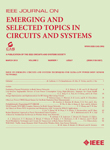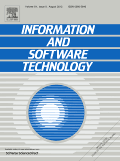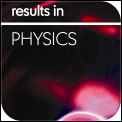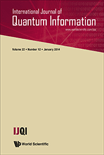
Quantum Machine Intelligence
Scope & Guideline
Advancing the frontier of quantum algorithms and AI.
Introduction
Aims and Scopes
- Quantum Algorithms for Machine Learning:
Research in this area focuses on developing quantum algorithms that can perform machine learning tasks more efficiently than classical algorithms, such as quantum support vector machines and quantum convolutional neural networks. - Hybrid Quantum-Classical Approaches:
This scope includes studies that integrate classical machine learning techniques with quantum computing paradigms, aiming to harness the strengths of both to solve complex problems. - Quantum Data Representation:
Investigations into effective representation of data in quantum formats, including encoding techniques and quantum feature maps that enhance the performance of quantum machine learning models. - Quantum Optimization and Reinforcement Learning:
Research on optimization techniques specific to quantum computing, including reinforcement learning frameworks that utilize quantum operations for training models. - Applications of Quantum Machine Learning:
Explorations into practical applications of quantum machine learning across various fields such as healthcare, finance, and network security, demonstrating the real-world impact of these technologies. - Quantum Neural Networks and Architectures:
Studies on the development and analysis of quantum neural network architectures, including their training methodologies, performance, and interpretability.
Trending and Emerging
- Integration of Generative AI with Quantum Techniques:
Recent publications highlight a trend towards integrating generative AI approaches with quantum computing, showcasing novel co-learning frameworks that enhance data processing capabilities. - Quantum Contextual Bandits and Recommender Systems:
There is an emerging focus on quantum contextual bandits, indicating a shift towards developing intelligent systems that can make recommendations based on quantum data. - Quantum Feature Learning and Representation Learning:
Increasing attention is being directed towards quantum feature learning methods, emphasizing the importance of effective data representation for enhancing machine learning performance. - Real-World Applications and Case Studies:
A notable trend is the publication of practical applications of quantum machine learning in various domains, such as healthcare diagnostics and financial forecasting, reflecting a shift towards applied research. - Exploration of Quantum Hardware Limitations:
Recent papers are increasingly exploring the effects of quantum hardware properties on machine learning models, indicating a growing awareness of the practical challenges in implementing quantum algorithms.
Declining or Waning
- Classical Machine Learning Comparisons:
There has been a noticeable decrease in papers that focus on comparing classical machine learning methods with quantum counterparts. As quantum methodologies become more established, the need for comparative studies may diminish. - Basic Quantum Computing Techniques:
Research centered on fundamental quantum computing techniques without direct application to machine learning seems to be waning. The journal is increasingly focused on advanced applications and hybrid approaches. - Quantum Simulation in Non-ML Contexts:
Papers dedicated to quantum simulations that do not directly relate to machine learning applications are becoming less frequent, as the journal's focus shifts toward more integrated studies that combine quantum computing with machine intelligence.
Similar Journals

Quantum Information Processing
Dissecting the complexities of quantum error correction.Quantum Information Processing, published by Springer, stands as a pivotal journal within the rapidly evolving field of quantum computing and information science. With an ISSN of 1570-0755 and an E-ISSN of 1573-1332, this journal has been a vital resource since its inception in 2004 and is set to continue contributing until 2024. Ranked in Q2 for Electrical and Electronic Engineering, Electronic, Optical and Magnetic Materials, and various other categories, its high visibility in academic circles is reinforced by its Scopus rankings, showcasing its integral role in advancing theoretical and practical aspects of quantum technologies. Although it operates under a subscription model, Quantum Information Processing prioritizes accessibility to groundbreaking research that covers a wide spectrum of topics, including quantum algorithms, quantum cryptography, and quantum error correction, making it essential reading for researchers, professionals, and students alike. As the field grows, the journal remains committed to fostering innovation and collaboration among scholars, ensuring its position as an influential platform for sharing pivotal advancements in quantum information theory and applications.

IEEE Journal on Emerging and Selected Topics in Circuits and Systems
Transforming concepts into cutting-edge solutions.IEEE Journal on Emerging and Selected Topics in Circuits and Systems is a prestigious peer-reviewed journal published by the IEEE - Institute of Electrical and Electronics Engineers, aimed at advancing the field of electrical and electronic engineering. With its ISSN of 2156-3357 and E-ISSN of 2156-3365, this journal has established itself as a leader in the exploration of innovative concepts and applications within circuits and systems since its inception in 2011. It is recognized for its high impact factor, being categorized in the Q1 Quartile for electrical engineering in 2023, and is ranked 126 out of 797 journals in the field, placing it in the 84th percentile according to Scopus rankings. As a valuable resource for researchers, professionals, and students alike, the journal focuses on emerging technologies and selected topics that contribute to the evolution of circuit designs, signal processing, and system architecture. Although it does not offer open access, the relevance and content of the journal ensure it remains at the forefront of electrical engineering discourse, continually fostering innovation and knowledge dissemination among the scientific community.

INFORMATION AND SOFTWARE TECHNOLOGY
Catalyzing Knowledge in Software Development and Information SystemsINFORMATION AND SOFTWARE TECHNOLOGY, published by Elsevier, is a leading journal that stands at the forefront of the fields of software engineering, information systems, and computer science applications. Since its inception in 1970 and with a focus extending to 2025, this esteemed publication has made significant contributions to the discourse on technological advancements and innovations. In 2023, it has achieved a remarkable Q1 categorization across multiple domains, including Computer Science Applications, Information Systems, and Software, reflecting its excellence and relevance in the academic community. With Scopus rankings that place it in the top percentiles in its categories (85th, 83rd, and 83rd respectively), the journal serves as an essential platform for researchers, professionals, and students eager to disseminate and engage with cutting-edge research and developments. While it does not currently offer Open Access options, the knowledge curated within its pages remains invaluable for advancing the fields of information technology and software development.

Results in Physics
Your Gateway to Cutting-Edge Physics DiscoveriesResults in Physics, an esteemed open-access journal published by ELSEVIER, has been a prominent platform for disseminating cutting-edge research in the field of physics since its establishment in 2011. With its ISSN 2211-3797 and E-ISSN 2211-3797, this journal proudly holds a Q2 ranking in the Physics and Astronomy category for 2023, showcasing its significance and quality within the scientific community. With a remarkable Scopus rank of #28 out of 243 in the general physics and astronomy domain, placing it within the 88th percentile, Results in Physics serves as a vital resource for researchers, professionals, and students alike, fostering a collaborative environment for the advancement of knowledge across various subfields. The journal aims to provide a rapid and unrestricted access to innovative findings, encouraging open scientific dialogue and enhancing the visibility of breakthrough research. Located in the Netherlands at RADARWEG 29, 1043 NX AMSTERDAM, Results in Physics continues to uphold its commitment to excellence and accessibility in the ever-evolving landscape of physics research.

Physical Review Research
Showcasing the best in rigorous physics research.Physical Review Research, published by the American Physical Society, is a premier open access journal dedicated to the dissemination of high-quality research across all areas of physics and astronomy. Since its inception in 2019, this journal has quickly established itself as a vital platform for researchers, achieving a prestigious Q1 ranking in the dynamics of Physics and Astronomy (miscellaneous) and holding a commendable position in the Scopus Rankings with a rank of #29 out of 243, placing it in the 88th percentile. With the commitment to fostering scientific collaboration and transparency, Physical Review Research offers unrestricted access to valuable findings, enabling researchers, professionals, and students alike to engage with cutting-edge contributions in general physics and astronomy. As it converges into its forthcoming years of publication, the journal remains dedicated to showcasing rigorous research and innovative ideas that drive the field forward.

Advanced Quantum Technologies
Connecting Theory and Application in Quantum ScienceAdvanced Quantum Technologies is a leading journal published by WILEY, specializing in the rapidly evolving fields of quantum mechanics and technology. With an impact factor reflecting its rigorous peer-review process and high-quality research, this journal aims to disseminate the latest advancements across multiple disciplines, including Computational Theory and Mathematics, Condensed Matter Physics, and Electrical and Electronic Engineering. Since its inception in 2018, it has garnered a prominent reputation, as evidenced by its Q1 ranking in several categories for 2023 and its high percentiles in Scopus rankings, showcasing its significant contributions to the academic community. Researchers and professionals alike will find valuable insights within its pages, promoting innovations that bridge theoretical frameworks and practical applications. Although currently not an Open Access journal, Advanced Quantum Technologies continues to strive for excellence, ensuring that its content is accessible and impactful to those who are shaping the future of quantum technologies.

Quantum
Connecting scholars to the pulse of quantum advancements.Quantum, an esteemed Open Access journal published by the Verein Förderung Open Access Publizierens Quantenwissenschaft, serves as a pivotal platform for the dissemination of groundbreaking research in the fields of atomic and molecular physics, and optics. Since its inception in 2017, Quantum has emerged as a leader in the academic community, boasting an impressive impact factor within the top quartile (Q1) in its categories, ranking #6 out of 81 in Physics and Astronomy (miscellaneous) and #35 out of 224 in Atomic and Molecular Physics, and Optics in 2023. With its global reach, based in Vienna, Austria, Quantum is dedicated to promoting innovative research and fostering collaboration among scientists, researchers, and students alike. The journal encourages unrestricted access to high-quality publications, ensuring that vital advancements in quantum science are available to all, thereby facilitating knowledge exchange and accelerating scientific progress. Explore the cutting-edge developments at the forefront of quantum studies and contribute to a vibrant scholarly community.

INTERNATIONAL JOURNAL OF QUANTUM INFORMATION
Unraveling the Mysteries of Quantum Computation and CryptographyINTERNATIONAL JOURNAL OF QUANTUM INFORMATION is a prominent academic journal published by World Scientific Publishing Co. Pte Ltd that serves as a critical platform for disseminating research in the rapidly evolving field of quantum information science. This journal, which has an ISSN of 0219-7499 and E-ISSN 1793-6918, covers significant advancements from 2005 to 2024, providing insights into quantum computation, quantum cryptography, and related topics that are essential for both theoretical and experimental physicists. The journal's influence is recognized in the academic community, as evidenced by its classification in the Q3 category within Physics and Astronomy (miscellaneous) as of 2023, where it ranks at #45 out of 81 with a percentile of 45. Although currently not available as an open access journal, it remains a pivotal resource for researchers and scholars aiming to stay at the forefront of quantum information research. As the field continues to grow in importance and application, the INTERNATIONAL JOURNAL OF QUANTUM INFORMATION plays a vital role in fostering innovative discoveries and promoting academic collaboration.

AVS Quantum Science
Unlocking the Mysteries of Quantum ScienceAVS Quantum Science, published by AIP Publishing, is a premier open-access journal dedicated to the interdisciplinary realm of quantum science, encompassing advancements in atomic and molecular physics, computational theory, and materials science. With an impressive array of contributions from researchers worldwide, this journal has achieved a remarkable status in the academic community, proudly holding a Q1 category ranking across multiple fields including Condensed Matter Physics and Electrical and Electronic Engineering as of 2023. As an essential resource for scholars, practitioners, and students, AVS Quantum Science emphasizes the critical importance of quantum phenomena in shaping future technologies and methodologies. The journal's commitment to rigorous peer review and dissemination of groundbreaking research serves as a pivotal platform for innovation, revealing new insights and fostering collaboration in the evolving landscape of quantum science.

Science China-Information Sciences
Leading the Way in Global Information Science Discoveries.Science China-Information Sciences is a prestigious academic journal published by SCIENCE PRESS, dedicated to advancing knowledge in the field of information sciences and computer science. Established in China, the journal has gained a remarkable reputation, with a 2023 category quartile ranking of Q1 in Computer Science (miscellaneous) and an impressive Scopus rank of #16 out of 232 in General Computer Science, positioning it within the 93rd percentile. The journal embraces a broad spectrum of topics, from theoretical frameworks to practical applications, providing a platform for researchers, professionals, and students to disseminate their findings and engage with the latest advancements in the field. With open access options available, Science China-Information Sciences ensures that innovative research is accessible to a global audience, fostering collaboration and interdisciplinary dialogue. The journal not only reflects the evolving landscape of information sciences but also plays a pivotal role in shaping future research directions.